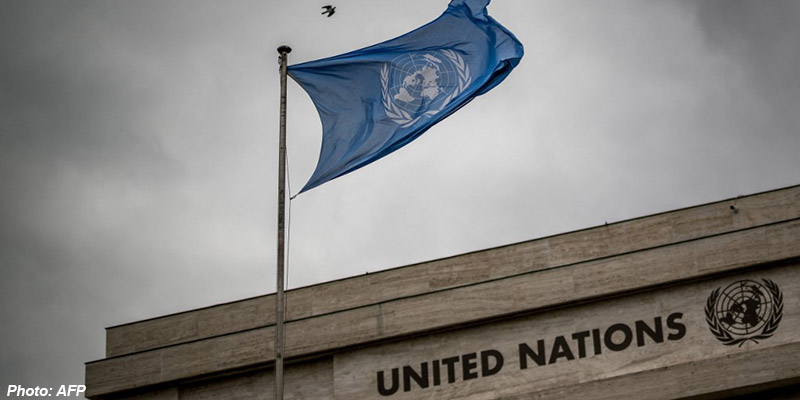- World
- Nov 15
Explainer - Election of UN Secretary-General
• The UN Security Council met on November 14 for its annual debate over how it operates — including the process to select the next Secretary-General in 2026.
• The next UN Secretary-General will serve a five-year term starting in January 2027, after current chief Antonio Guterres of Portugal leaves office.
• Guterres, the ninth Secretary-General of the United Nations, took office on 1 January 2017.
• The Secretary-General is appointed by the General Assembly, the UN’s most representative body, following a recommendation from the UNSC’s 15 members.
• Governments will soon submit letters nominating candidates to lead the 80-year-old organisation, whose top post is traditionally rotated among geographical regions.
• Incidentally, all the UN chiefs to date have been men.
• As no woman has ever held the post, some diplomats have spoken up for “an open, participatory and gender-inclusive process”.
The role of UN Secretary-General
• The position of Secretary-General is one of great importance that requires the highest standards of efficiency, competence and integrity, and a firm commitment to the purposes and principles of the Charter of the United Nations.
• The Charter describes the Secretary-General as “chief administrative officer” of the Organisation, who shall act in that capacity and perform “such other functions as are entrusted” to them by the Security Council, General Assembly, Economic and Social Council and other United Nations organs.
• The Charter also empowers the Secretary-General to bring to the attention of the Security Council any matter which in their opinion may threaten the maintenance of international peace and security.
• These guidelines both define the powers of the office and grant it considerable scope for action.
• The Secretary-General would fail if they did not take careful account of the concerns of Member States, but they must also uphold the values and moral authority of the United Nations, and speak and act for peace, even at the risk, from time to time, of challenging or disagreeing with those same Member States.
• That creative tension accompanies the Secretary-General through day-to-day work that includes:
a) Attendance at sessions of United Nations bodies.
b) Consultations with world leaders, government officials, and others.
c) Worldwide travel intended to keep the Secretary-General in touch with the peoples of the Organisation’s Member States and informed about the vast array of issues of international concern that are on the Organisation’s agenda.
• Each year, the Secretary-General issues a report on the work of the United Nations that appraises its activities and outlines future priorities.
• The Secretary-General is also Chair of the United Nations System Chief Executives Board for Coordination (CEB), which brings together the Executive Heads of all UN funds, programmes and specialised agencies twice a year in order to further coordination and cooperation in the entire range of substantive and management issues facing the UN System.
• One of the most vital roles played by the Secretary-General is the use of their “good offices” — steps taken publicly and in private, drawing upon their independence, impartiality and integrity, to prevent international disputes from arising, escalating or spreading.
Election process
• According to Article 97 the UN Charter, the Secretariat shall comprise a Secretary-General and such staff as the Organisation may require. The Secretary-General shall be appointed by the General Assembly upon the recommendation of the Security Council. He shall be the chief administrative officer of the Organisation.
• The President of the General Assembly and of the Security Council invite candidates to be presented with proven leadership and managerial abilities, extensive experience in international relations, and strong diplomatic, communication and multilingual skills.
• Member States are invited to present candidates in a letter to the President of the General Assembly and the President of the Security Council.
• The President of the Council draws up a list of candidates on the basis of
written nominations from member countries or regional groups and circulates it among Council members.
• To arrive at a consensus decision, informal consultations take place among Council members.
• When there are a large number of candidates, secret straw votes or ballots may be conducted to see whether Council members “encourage” or “discourage” a candidate.
• To formalise its decision, the Security Council holds one or more private meetings, attended by Council members and a limited number of Secretariat staff.
• The Council chooses its candidate by vote in secret ballot(s) and recommends his/her appointment to the General Assembly by a resolution adopted unanimously.
• The ballots for permanent (P5) members are marked ‘permanent member’ and ‘non-permanent member’ for the other members.
• The decision of the Council is communicated to the General Assembly by letter from the Council President to the President of the General Assembly.
• The General Assembly considers the recommendation and votes on it by secret ballot, or by acclamation. The appointment of the Secretary-General is confirmed by a majority of the members present and voting, known as a simple majority, in the General Assembly meeting, unless the Assembly itself decides that a two-thirds vote is necessary.
List of UN Secretary-Generals:
i) Trygve Lie (Norway), who held office from February 1946 to his resignation in November 1952.
ii) Dag Hammarskjold (Sweden), who served from April 1953 until his death in a plane crash in Africa in September 1961.
iii) U. Thant (Burma, now Myanmar), who served from November 1961, when he was appointed acting Secretary-General (he was formally appointed Secretary-General in November 1962) to December 1971.
iv) Kurt Waldheim (Austria), who held office from January 1972 to December 1981.
v) Javier Perez de Cuellar (Peru), who served from January 1982 to December 1991.
vi) Boutros Boutros-Ghali (Egypt), who held office from January 1992 to December 1996.
vii) Kofi A. Annan (Ghana), who held office from January 1997 to December 2006.
viii) Ban Ki-moon (South Korea), who held office from January 2007 to December 2016.
ix) Antonio Guterres (Portugal) took office on January 1, 2017.

